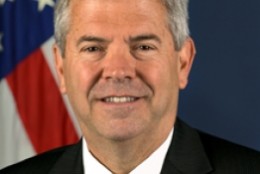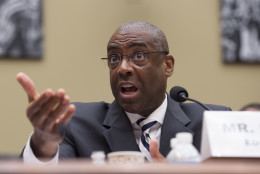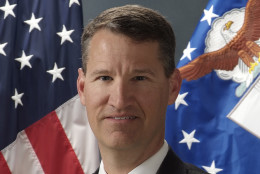Technology
-
Better cost data will help agency CIOs make more informed decisions about moving to newer, more cost effective IT solutions, said Richard McKinney, the Transportation Department's chief information officer.
February 03, 2016 -
House Oversight and Government Reform Committee members took Education Department’s acting Secretary John King and chief information officer Danny Harris to task for systemic cybersecurity problems, and what some say is a lack of accountability for past behaviors.
February 02, 2016 -
Fiscal 2017 may be the beginning of a funding gap between what the Defense Department needs and what it can be allocated unless Congress can fix the budget.
February 02, 2016 -
Last year, Google invested $100 million in Crowdstrike, a cybersecurity company. The Defense Department has also turned to Crowdstrike as part of its third offset strategy. Just who is this outfit? Federal News Radio’s Scott Maucione talked with Robert Johnston, a principal consultant at Crowdstrike, about where the U.S. is in cybersecurity and what he thinks it can expect. He shared that information on Federal Drive with Tom Temin.
February 02, 2016 -
Haiyan Song, a senior vice president of security markets for Splunk, makes the case that the only way the government will survive the continuous onslaught of cyber attacks is by working more closely with industry.
February 02, 2016 -
The Pentagon's operational testing and evaluation office says "red teams" are spread too thin to test DoD networks against real-world threats.
February 02, 2016 Don Anderson, assistant director for Analysis for the U.S. Air Force, joins host John Gilroy and explains how data management and data visualization can save your agency money. February 2, 2016
February 01, 2016-
The Air Force was an early adopter of a online concept: A self-service personnel portal for its service members. But that system, called MyPers, was getting a little long in tooth. It's been undergoing a thorough update. Air Force CIO Bill Marion told Federal Drive with Tom Temin why the system is so important and what's they're doing.
February 01, 2016








